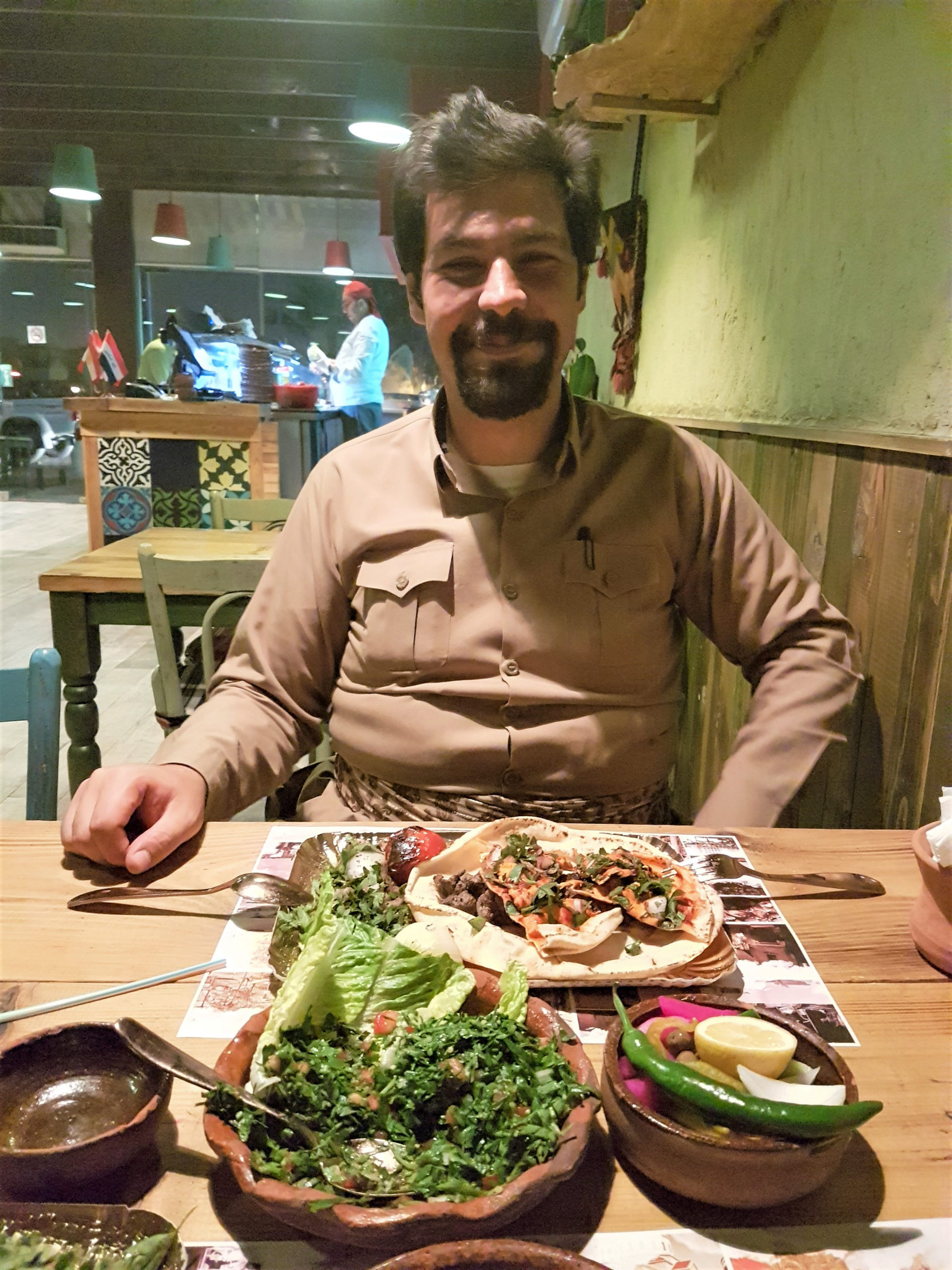

This is Dashti from Erbil having a lush Kurdish meal. He grew up in Belgium, as his father, a confidant of the Kurdish leader Barzani was lobbying for the Kurdish cause in Europe. In this position, he was the first to draw the attention of Western governments to Saddam Hussein’s gassing of Kurds at Halabja in 1988. In 2014 when Dashti’s homeland got under attack by ISIS, he decided to come back and help. First, he worked as translator for Western military advisors of the Kurdish Peshmerga forces fighting ISIS. Many of those were German, and he shook hands with Ursula von der Leyen, the current President of the EU Commission who was German minister of defence at the time. After a while he became a military instructor himself, teaching the “mortar course” as well as “trench tactics in theory and practice”. He said that he always found the military interesting. As a child, he met Mikhail Kalashnikov the Russian inventor of the AK-47, as his father, who married a Russian and used to live in Moscow, is well connected in Russia.
Dashti said that the Peshmerga learned valuable lessons from the German military. But what was essential, were the anti-tank Milan rocket launchers provided by the Bundeswehr. They tipped the balance of power on the battlefield in favour of the Peshmerga. ISIS had used tanks and armoured trucks with suicide bombers that would blow up the Kurdish defences. The Milans enabled the Peshmerga to destroy those before they could come close enough to do any harm. This vital reinforcement came at a crucial time when ISIS stood at the gates of the Kurdish capital Erbil, and its inhabitants started to panic. Many of the soldiers Dashti had instructed died in battle at the time. He said that he never met any captured ISIS fighters, but that he will never forget their smell when entering a room in which they had been kept prisoner.
But despite the victory over ISIS the situation in Kurdistan is very difficult he said and he is struggling to find work. There have been constant stand-offs with the federal government in Bagdad, and a referendum that endorsed Kurdish independence in late 2017 was ignored by the central Iraqi authorities. The economy was booming before the crisis of 2014, but the war ruined this development, so that unemployment and a lack of perspectives have been rife. This is exacerbated by widespread corruption and competition among the leading clans, the Barzanis and the Talabanis. Many young people want to emigrate to the West, particularly Germany and the UK. Others would turn to religion and would spend too much times in the mosques. “Young people without perspective spending too much time in the mosque are a dangerous mix. The potential for radicalisation is high,” Dashti said. (May 2017)
